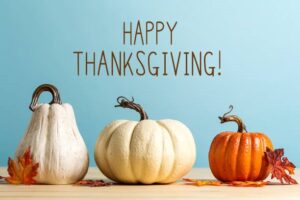The History and Thanksgiving and Eritreans celebrating it
by Aklilu Lijam
November 25, 2021
Thanksgiving, which occurs on the fourth Thursday in November, is based on the colonial Pilgrims’ 1621 harvest meal. The holiday continues to be a day for Americans to gather for a day of feasting, family and football. The Plymouth colonists and the Wampanoag (the Native American Indian tribe inhabited present day Massachusetts) shared an autumn harvest feast that is acknowledged today as one of the first Thanksgiving celebrations in the colonies. For more than two centuries, days of thanksgiving were celebrated by individual colonies and states. It wasn’t until 1863, in the midst of the Civil War, that President Abraham Lincoln proclaimed a national Thanksgiving Day to be held each November. Hence, Thanksgiving Day is a national holiday in the United States, celebrated by the whole nation.
Yet, the history of Thanksgiving is shadowed by controversies. Many of us probably don’t take the time to reflect on the first Thanksgiving story. Remember, the classic Thanksgiving story is about the Pilgrims or Immigrants — who showed up on American shores uninvited, and in uncertain economic circumstances. Thanksgiving is a celebration of the fact that the native-born Americans who lived in the area welcomed these newcomers, shared their food with them, and helped them make the transition to their new home. However, instead of expressing their gratefulness the European newcomers attacked the native American settlers to grab their land. The centuries that followed the arrival of Europeans were years of tremendous upheaval, as the expansion of settler territory and the founding and growth of the United States resulted in Native American communities being moved, renamed, dispersed and in some cases, destroyed.
Some Native Americans and many others take issue with how the Thanksgiving story is presented to the American public, and especially to schoolchildren. In their view, the traditional narrative paints a deceptively sunny portrait of relations between the Pilgrims and the Wampanoag people, masking the long and bloody history of conflict between Native Americans and European settlers that resulted in the deaths of tens of thousands. Since 1970, protesters have gathered on the day designated as Thanksgiving at the top of Cole’s Hill, which overlooks Plymouth Rock, to commemorate a “National Day of Mourning.” Similar events are held in other parts of the country.
I apologize if I am destroying your mood of celebrating Thanksgiving by bringing up these stories but we need to tell the truth and what exactly happened as it is history. I myself believe Thanksgiving is a holiday of being grateful, of being in the mood of love and happiness and forgiveness.
BTW – Eritreans all over the United States will be celebrating Thanksgiving, and is a favorite holiday for many people. In many Eritrean households, turkey is served right along with the Eritrean Traditional dishes mainly Enjera and Tsebhi.
Typical Eritrean Thanksgiving celebration is combining the American culture with the Eritrean lifestyle. It is attempting to find a balance between Eritrean and American customs and accommodate both ends of the spectrum.
Most Eritrean families in the US make sure to include foods such as Tsebhi dorho, Kayhi Tsebhi, Alecha and Kilwa Sega with the traditional Thanksgiving dishes such as turkey and pie, which represents one aspect of their attempts to combine two cultures into one. When the table is ready one of the elders in the family will lead a long prayer to bless the food, then all will start to dig in. Afterward, a coffee ceremony is held in the living room, which consists of preparing the coffee beans at home and drinking multiple rounds of it in miniature sized cups. If you have American family or friends celebrating with you can witness how much they will enjoy these Eritrean spicy dishes and coffee ceremonies with their favorite American turkey and pie.
Thanksgiving holiday is it’s the time where families and friends spend time together and remember to be grateful for their blessings, time for families to gather, share their nice stories and caring memories. Dinning and wining and laughing together.
As we celebrate with our families and express our gratitude, let us give for the fact that we are all safe and healthy after the inconvenient time of pandemic. With that, Happy Thanksgiving!

Thank you so much Woldeselasie Hawey! This is a good feedback!
Thank you Aklilu for giving us a healthy dose of Thanksgiving history, sure enough when the holiday is seen through lens of Native People and fair minded people has significant historical deficiencies.
Though through the years there was pushback to correct and address the true history and spirit of Thanksgiving holiday.
Asa result:
(I)we have National Native Heritage Day which is observed on Nov. 26, a day after Thanksgiving,
(ii)indigenous People’s Day national holiday second Monday in October.
Thanks you again.
Thank you so much Ristina and Tsegina!
Thank you Aklilu, I am enjoying your bite-sized informational essays under the BTW theme. keep up the great job!
Thank you Aklilu for the history and background of the celebration of Thanksgiving. It is a bittersweet day. And yes you are right for us Eritreans it is a day of combining the two cultures and creating a unique tradition. My kids love what they call the “Habesha stuffing” (made with berbere).
You have a unique ability for writing. Keep it up.
Thank you so much Mussie and Gabe! Thanks for the encouragement.
Dear Aklilu
I read your Thanksgiving article with great interest. Thank you for sharing your insight on the tradition of Thanksgiving. Keep it up.
Gabe Bekit
* ንምንባቡ ማለተይ እየ::
ፍትው ሓው ኣክሊሉ :: ንንባቡ ጥዕም ንምርድኡ ቀሊል:: መእተዊ : ሓተታ: መደምደምታ ልጡም :: ጽቡቅ ኣጸሓሕፋን መሃሪን ኾይኑ ረኺበዮ ጽሑፍካ :: Like Father, Like Son ናይ መን ድኣ ክትውስድ ::🤣🤣🤣🤣ርግጽ እዩ ናይ ምስጋና መዓልቲ ኣይንበሎ ድኣ እምበር ኣብ ዓድና እውን ኣብ ከበሳ ” ሓሙስ ጽግቦ” ኣብ ሃይገት ድማኒ በዓል ማርያም ግንቦት ንብሎ:: ቀጽል ብርዕኻ ኣይትዕጸፍ :: ሓውኻ ሙሴ ::